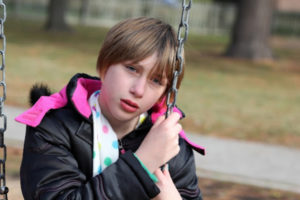
The Prosecutor’s Evidence in a Child Sex Abuse Case
While there may be a lack of physical evidence in many child sex abuse cases, that isn’t to say that allegations aren’t credible. According to one source, 28-33% of women and 12-18% of men are victims of childhood or adolescent sexual abuse. Given these statistics, prosecutors are not going to turn an alleged victim away if they report abuse. Instead, prosecutors come up with other types of evidence to bring their case. One way prosecutors put a child sex case together is by comparing the alleged victim’s behavior before and after the alleged offense.
Certainly, sexual abuse has a profound effect on children. For example, experts note that victims of childhood sexual abuse are much more likely to experience depression, guilt, shame, self-blame, eating disorders, somatic concerns, anxiety, dissociative patterns, repression, denial, sexual problems, and relationship problems.
Part of this comes from a child’s difficulty—or inability—to internalize what happened to them. Children may feel that they are to blame for the abuse. This often leads to a low self-image, which, over time, can result in depression or anxiety disorders.
Children may also experience body-image issues during their adolescent years or even younger in some cases. This stems from children feeling “dirty” or “ugly” after being abused. Child sex abuse can affect sleep, as well. It is well-known that a victim of childhood sexual abuse often suffers behavioral changes.
How a Prosecutor Uses Evidence of Behavioral Changes
When a prosecutor begins to piece their case together, behavioral changes are some of the things they will latch onto. Practically speaking, this involves a prosecutor presenting a witness, usually a family member, who testifies to changes in the alleged victim’s behavior. For example, an alleged victim’s mother may testify that a child was a typical, happy child before the alleged abuse. However, she may testify that after the alleged abuse, the child suddenly developed a host of mental health issues. In this case, prosecutors will also present testimony from an expert witness, usually a child psychologist, to testify that the effects of childhood abuse could cause the symptoms the mother testified to. The expert will not be able to say, with any certainty, that the child’s behavioral changes were definitely caused by abuse—only that they could be. However, this is often enough to secure a conviction, especially given the nature of the charges.
Problems with Relying on Changes in a Child’s Behavior as Evidence of Sexual Abuse
While changes in child behavior and sexual abuse can go hand in hand, that isn’t always the case. It is not accurate to say that just because a child is experiencing psychological symptoms consistent with sexual abuse that they were indeed the victim of abuse. At best, evidence of a child’s changed behavior is circumstantial evidence of abuse. In other words, abuse may be one explanation for the child’s change in behavior, but it is not the only explanation. Perhaps a child was being bullied at school? Or maybe they suffered the loss of a close loved one or have a family history of certain mental health disorders?
Prosecutors are not going to look into these possible explanations and will claim that the only reason a child’s behavior changed is that they were the victim of abuse. But this may not be accurate.
It’s Essential to Know How to Defend Against Evidence of Changed Child Behavior
In a New Mexico sex abuse case, the question comes down to whether a child’s behavioral changes were the result of sexual abuse beyond a reasonable doubt. In any criminal trial, a judge or jury cannot convict you of a crime unless the prosecution proves you guilty beyond a reasonable doubt. And a prosecutor’s claim that a child’s changed behavior is reliable evidence of abuse would seem to be far from the level of proof needed to render a guilty verdict. However, each year, countless people plead guilty or are found guilty of sex offenses based on this type of evidence.
If you are facing a child sex offense in New Mexico, the situation is very serious. While the prosecution may not have physical evidence that you committed a crime, you should assume that they will still come up with a compelling case to put in front of the jury. Don’t let the prosecution catch you off guard—discuss your case with a criminal defense attorney today. The assistance of an experienced New Mexico criminal defense attorney is critical to safeguarding your rights, your future and your freedom.
Are You Facing a New Mexico Child Sex Abuse Charge?
If you are charged with a sex offense against a child, you must be prepared. The prosecution will very likely argue that child behavior changes due to sexual abuse is evidence of your guilt. While this may sound like a far cry from the level of evidence needed to support a conviction, you can’t risk something as important as your freedom. At the New Mexico Criminal Law Offices, we have extensive experience aggressively handling child sex abuse cases. We are prepared to refute the prosecutor’s claims related to changes in a child’s behavior. To learn more, and to schedule a free consultation with one of our knowledgeable New Mexico criminal defense attorneys, call 505-200-2982 today. You can also reach us through our online form.

